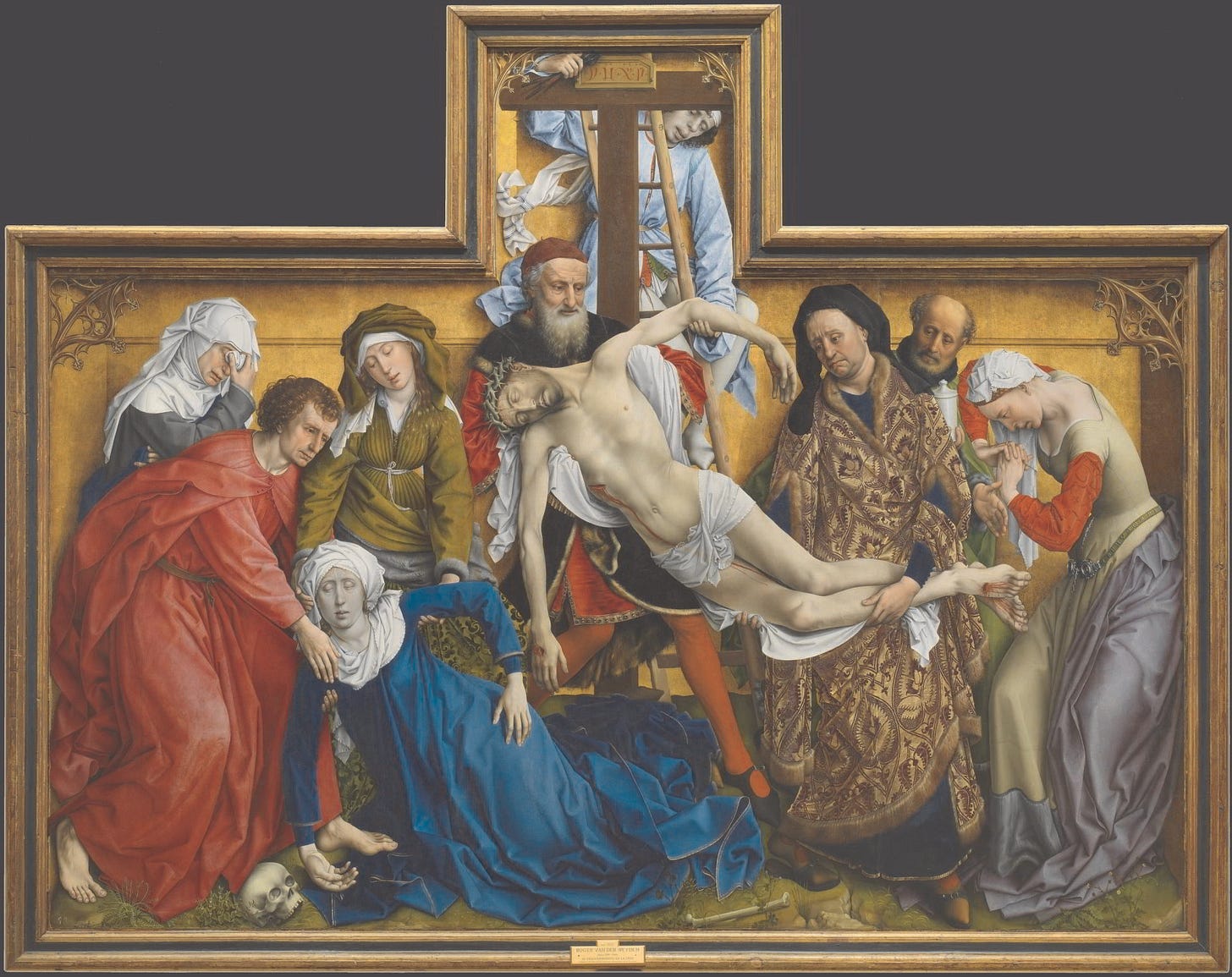Is She or Is She Not Co-Redemptrix? That Is the Question!
On the logic, language, and love behind the Church’s debate over Mary’s unique cooperation in Redemption.
This article is written by Robert Cassidy who was Mark’s Academic Tutor for a number of years when he studied theology at Maryvale and Mark still regards Robert with more than a little awe, it has to be said!
A Scotsman by birth, Robert earned an STB from St. Patrick’s College, Maynooth (Dublin); a Master’s degree in Studies on Marriage and the Family from the John Paul II Institute in Rome; and an STL in Studies on Marriage and the Family from the International Theological Institute (Gaming), Austria. While completing his doctoral dissertation, he taught theology at the Franciscan University of Steubenville campus in Gaming. He nows lives in England with his wife and children.
We hope you enjoy Robert’s writing here:
Words are wonderful little things – they can build bridges between peoples, or they can sentence them to death. The best use of them is in communicating the truth of things. More problematic is obfuscating, prevaricating, avoiding the question, or subtly slighting someone.
A million reasons could be given for not answering a question. Perhaps the question is considered inappropriate, too awkward for the one addressed. Yet the most egregious use of language is an insulting remark directed against someone’s mother. She is, after all, a sign of everything that someone holds dear. She is even a sign of where someone comes from – one’s motherland. Every mother is a sign of that mysterious reality called home.
To attack, or even to ignore, someone’s home usually sparks a visceral reaction. That point has now been reached among many Catholics. It is not something new, but noble.
When the Third Ecumenical Council was held at Ephesus in 431 AD, Catholics had had enough of Our Lord’s Mother being bad-mouthed – they rioted. They rioted to let the bishops, who were meeting to discuss the question of whose mother Mary actually was, know that there would be consequences if they tried to fudge the question.
The bishops got the message: a minimalist, watered-down doctrinal presentation to suit a certain heterodox faction would not be Catholic, and would, in fact, be an insult to She who is Theotokos – the “God-bearer,” the Mother of God.
The Recent Declaration
Recently, the Church’s doctrinal office, the place where you can go to find out whether you are a formal or material heretic (if someone has the courage to judge you), stated:
“Given the necessity of explaining Mary’s subordinate role to Christ in the work of Redemption, it is always inappropriate to use the title Co-Redemptrix to define Mary’s cooperation.” (Mater Populi Fidelis, n. 22)
It has sparked a riot, not on the streets of Ephesus, but in the media space and in the pews. Horrified at the shunning of the prerogatives of She whom the “father of Catholic theology,” St. Irenaeus of Lyon, long before the Council of Ephesus, referred to as causa salutis (“cause of salvation”), many have rushed to defend her most high dignity, perceiving with sadness that her honour is being maligned.
Some think the “rioters” have overreacted and were simply looking for an excuse to reignite the Pope Francis civil war within the Church. One thing is for sure: it is a reaction that has shattered the relative calm that followed the election of Pope Leo XVI.
How will he respond to claims that Christ’s own Mother, she who is the Mother of all the elect, has been insulted? More still, how will he respond to the undermining of the Church’s highest teaching office, which he holds, by a document he himself has signed?
The Logic of the Declaration
There are a multitude of questions surrounding the cause of this “riot” – the problematic and theologically vacuous claim that “it is always inappropriate to use the title ‘Co-Redemptrix’” being the most obvious.




